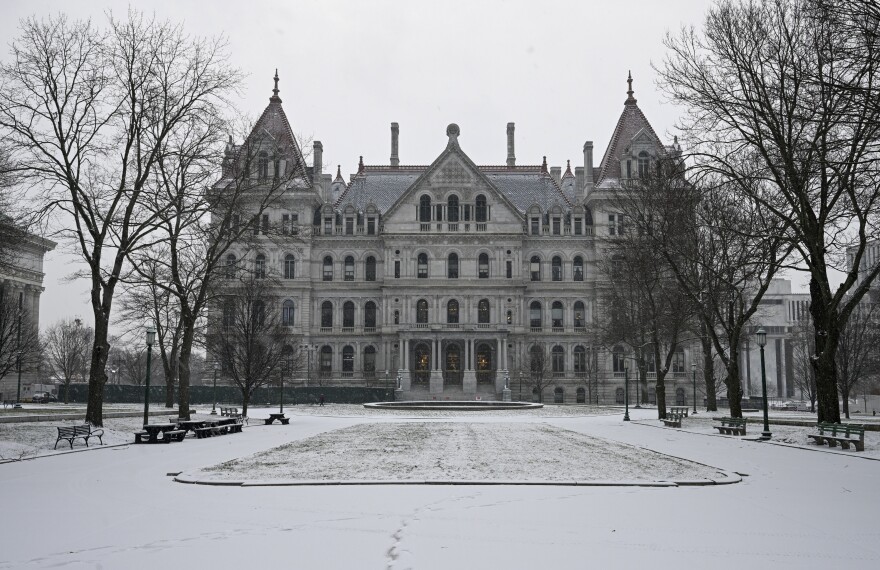New York legislators are beginning what they hope is the final stretch to accord on a state budget before it’s due at the end of the month.
Lawmakers and Gov. Kathy Hochul have a lot of decisions to make, including whether to raise taxes and how much money to give schools.
Senate Majority Leader Andrea Stewart-Cousins and Assembly Speaker Carl Heastie on Monday convened the first meeting of the General Conference Committee for the state budget.
The public meeting is an annual ritual held at the start of budget negotiations. After this, the talks will be conducted behind closed doors until an agreement is announced.
In between, the Democratic lawmakers, who are mostly in agreement with each other on their spending priorities, must hash out their differences with Hochul, who is also a Democrat.
One of the biggest differences is over how to distribute school aid.
Hochul wants to end a provision known as “hold harmless,” which guarantees that no school district receives less money than it did the previous year. Her plan would result in half of the schools in the state getting fewer resources than they did last year.
Stewart-Cousins expressed opposition earlier this month.
“Almost half of the school districts in the state will be receiving less funding than they would have anticipated,” Stewart-Cousins told reporters on March 6. “We're very, very concerned about that.”
Both the Senate and Assembly want to raise income taxes on multi-millionaires and corporations to help pay for more school aid and other items.
Hochul has said repeatedly that she won’t support new taxes.
“Raising income taxes is a nonstarter for me,” Hochul said on March 12.
Stewart-Cousins and Heastie said for now, though, everything is on the negotiation table. Speaking to the media after the General Conference Committee meeting, they said it’s possible to wrap up the budget — potentially with a deal on building new affordable housing — before the Easter holiday on March 31.
“Ten days in Albany time is a lifetime,” Heastie said. “I’m hoping we get there on a housing deal. It's critical.”
The budget is due April 1, but in past years, it has been anywhere from a few days to one month late.



